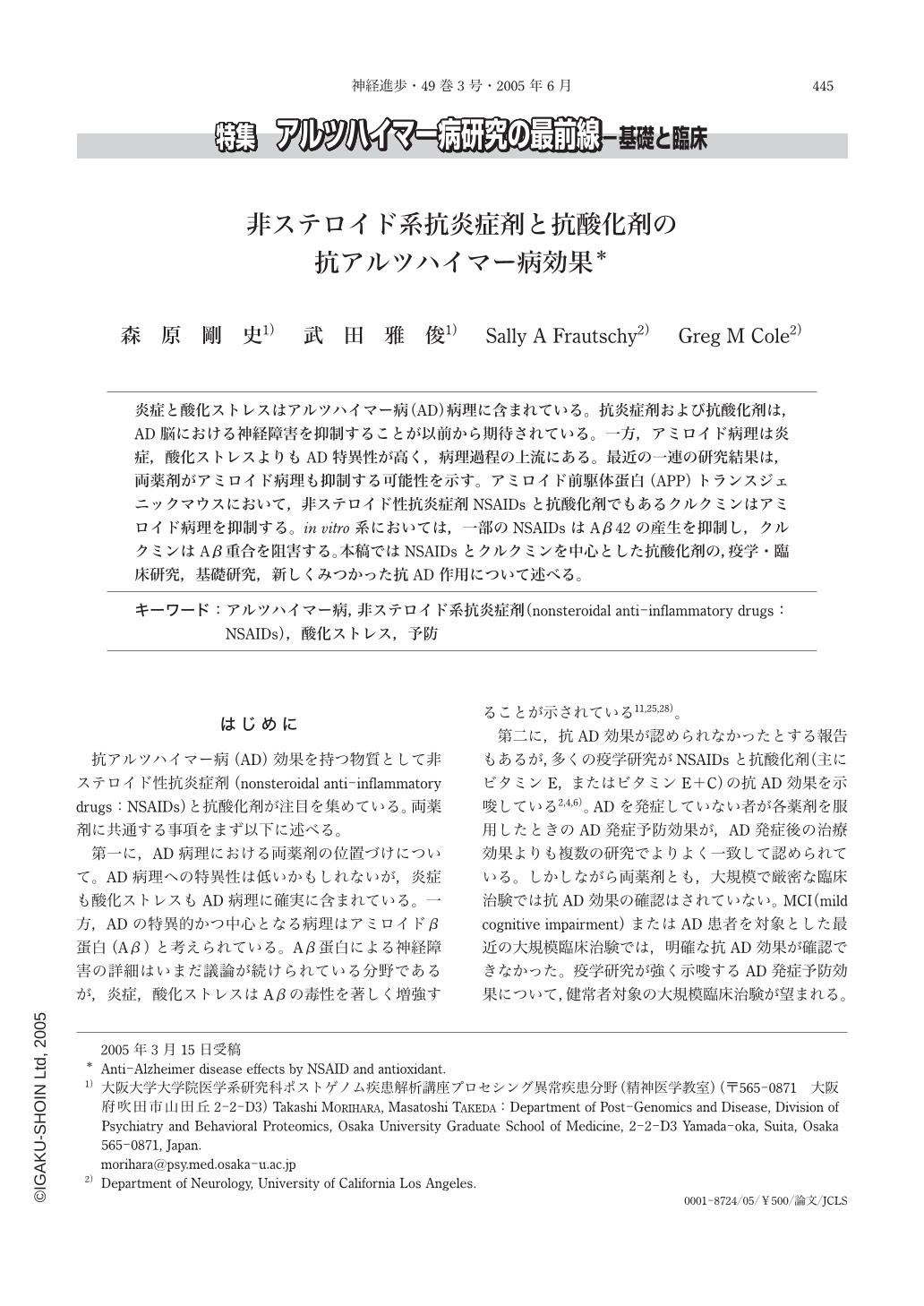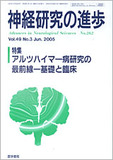Japanese
English
- 有料閲覧
- Abstract 文献概要
- 1ページ目 Look Inside
炎症と酸化ストレスはアルツハイマー病(AD)病理に含まれている。抗炎症剤および抗酸化剤は,AD脳における神経障害を抑制することが以前から期待されている。一方,アミロイド病理は炎症,酸化ストレスよりもAD特異性が高く,病理過程の上流にある。最近の一連の研究結果は,両薬剤がアミロイド病理も抑制する可能性を示す。アミロイド前駆体蛋白(APP)トランスジェニックマウスにおいて,非ステロイド性抗炎症剤NSAIDsと抗酸化剤でもあるクルクミンはアミロイド病理を抑制する。in vitro系においては,一部のNSAIDsはAβ42の産生を抑制し,クルクミンはAβ重合を阻害する。本稿ではNSAIDsとクルクミンを中心とした抗酸化剤の,疫学・臨床研究,基礎研究,新しくみつかった抗AD作用について述べる。
Both inflammation and oxidative stress are involved in Alzheimer disease(AD)brain pathology. Both anti-inflammatory drugs and antioxidants those could prevent neuronal damage have been candidates for anti-AD drugs. Amyloid pathology is the specific and upstream pathology of AD. Series of recent studies revealed that both drugs could suppress amyloid pathology. Amyloid pathology in APP transgenic mice is suppressed by nonsteroidal anti-inflammatory drug(NSAID)and curucumin which is anti-inflammatory and antioxidative. In vitro, Aβ42 production is reduced by a subset of NSAIDs. Aβ aggregation is inhibited by curcumin. Here, we will discuss epidemiological/clinical studies, basic research and recently revealed effects of these drugs.

Copyright © 2005, Igaku-Shoin Ltd. All rights reserved.


